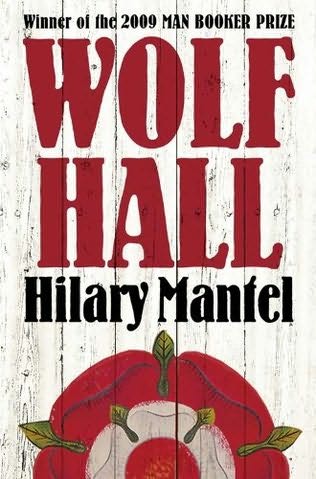
I am lucky enough to know quite a lot about the court of the Tudors, because I have watched “The Tudors”, an English TV show that despite being inaccurate at times gives an idea of the major characters at stake. I have also read a book recently about the “marital problems” of King Henry (“The Six Wives of Henry VIII” by Antonia Fraser). I find the Tudors one of the most fascinating dynasties in history and for sure it is the most engaging soap-opera I have ever seen. If you don’t know much about the people buzzing around King Henry at the time, I think you’ll struggle a bit with this novel. Henry’s best friend Charles Brandon whom he made duke, the powerful Cardinal Wolsey with his ambition to be Pope, the Boleyns, the Seymours and the Howards, Katherine and her ladies-in-waiting, the ambassadors, Thomas More, they all appear in the book and play their role in the development of the story. Nonetheless, Thomas Cromwell is the absolute protagonist of “Wolf Hall”: everything is seen from his point of view, despite the fact that the novel is in the third person. Usually Thomas Cromwell is depicted as a stone-cold and shrewd person, almost a villain, but Hilary Mantel depicts him as a sensitive person, fond of his family and of his protector, the Cardinal. Of course he’s ambitious and I dare say on the good side of shrewdness, if there is one. He’s learned, almost enlightened, he appreciates Italian painting and has a gift for languages. I was delighted by this book and by the world it opens on: Thomas Cromwell is not just a name on a history book, but he steps into the real world. He has passions, faults, virtues of course, doubts and secrets. And so is King Henry, Mary and Anne Boleyn, Thomas More and all the historical characters of the book. I’m waiting for the sequel that Hilary Mantel is writing (the book ends abruptly when King Henry is about to stop by the Seymour and fall in love with Jane, later to become his third wife). Much has been said about “Wolf Hall” since it won the Booker Prize, for example on the meaning of the expression “historical fiction”. It is obvious that Hilary Mantel did a lot of research to write this book, but it’s impossible for a book set in the 16th century to be 100% accurate, not only because it would ruin the literary value of the work, but also because there are many things we don’t know or we are not sure of. Were Mary Boleyn’s children actually the king’s? Did he also sleep with Anne and Mary’s mother? Did Anne make love to distinguished courtier-poet Thomas Wyatt and was she betrothed to Henry Percy, before she became the king’s mistress? Hilary Mantel resolves this by hinting at things we are not sure of as gossips of the time, but even if she changed things, I personally believe that’s alright, as long as you claim yours is just fiction.





